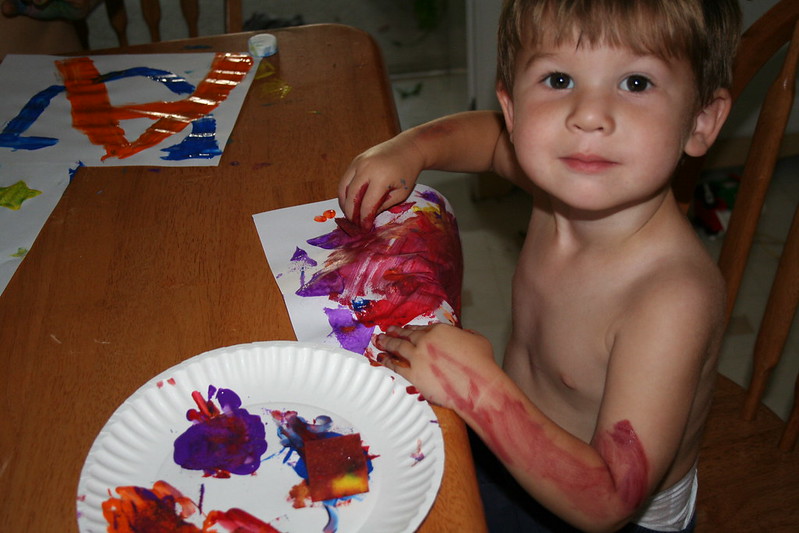
Supplementing your child’s education and learning endeavors at home can be an excellent way to enhance their journey and leisure time. By incorporating fun into their learning, they can absorb as much information as possible and boost their skills.
But far from requiring your child to take formal lessons at home as well as at school, you want to make sure that you’re keeping additional learning fun and engaging to make it more impactful and enjoyable instead of increasing pressure and potentially having the opposite effect.
So, what can you do at home with your kids to help them learn and boost their education?
Cooking Together
Cooking with kids is not just about building real-life skills; it’s about creating a joyful learning experience. Everyone needs to eat and know how to cook, so starting young can be a great building block for the future. The skills that can be practiced when cooking include following directions, reading and understanding directions (when old enough), math skills, measuring skills, and communication. But more than that, it’s about the joy of creating something together and the excitement of learning new skills. This can be a fun and rewarding experience for both you and your child, sparking a sense of excitement and joy in the learning process.
Reading recipes allows children to learn new words. What they’re reading is a practical lesson that builds problem-solving and creativity skills. After all, following directions is a vital tool at any age, and cooking along with a recipe can build this skill.
In addition, you can use cooking to teach math and measure ingredients, learning about shapes and colors, and even supporting science lessons. Kids learn how different ingredients work together and even chemicals for cleaning up, too. Cooking with kids is a fun and immersive learning experience with multiple benefits, while making something yummy!
Playing Games
Playing games with your kids can be both educational and fun. Not only will they learn the rules of the games, but they can also develop essential life skills such as teamwork, strategic thinking, problem-solving, and patience. This reassures you that your child is learning and developing important skills even during playtime, making the learning process engaging and interesting for both you and your child.
You can put this to the test by playing a range of different games. From board games such as Monopoly, which can support learning a great many skills, including financial literacy, to Scrabble, which is works on spelling, or you can play charades, which boosts drawing skills and problem-solving. Gaming can also help boost these skills, and if you choose educational games like ‘Math Bingo’ or ‘Spelling Bee,’ you can enjoy many more benefits, all while your child is having fun.
So whether they’re playing games like solitaire online or with actual cards, mahjong, Roblox, Minecraft, or etc, games in any form can be massively beneficial.
Playing Sports
Participating in sports is a great way to help your child stay physically active, and it can also be an excellent educational tool. Your child will learn the rules of the games. Working as a team and learning to listening to the coach are skills that invaluable in a sports environment. Another good thing to start understanding their bodies and knowing how far to push the body during physical exertion.
At a basic level, teaching your child the importance of staying hydrated can support knowledge of the body and its functions, as can discussing a healthy diet. Talking about injuries, how important sleep is, and how to interact with other people are again valuable skills they can use both in and out of the classroom.
Reading
Reading isn’t always a fun activity for all kids, and that’s okay. As a parent, it’s important to remember that reading shouldn’t be something you gate keep to certain types of books or texts.
Reading can be done in many different ways. Even encouraging them to read cereal boxes can be a good start. Comic books, subtitles on the TV, reading instructions for games or recipes, signs while driving are just a few places you can have your child consume words, and nothing should be off the table when focusing on supporting a healthy love of reading for kids. Reading a variety of texts can expand their vocabulary, improve their comprehension, and foster a love for reading.
Crafting
As a former teacher, one of my favorite activities is still arts and crafts! This is another great educational tool you and your child can do at home to facilitate learning. They will get practice counting to measure out different weights or amounts of items required to complete their tasks. It can be learning time so they know how long to leave something they make to cook or set.
You can use your craft session to help them learn about budgets as you purchase the required materials and learn how to work independently to support learning and confidence, which is an great part of learning; if your child is confident in their abilities, they’ll be able to motivate themselves to learn and adapt to different situations. To make craft sessions more educational, you can incorporate learning about measurements, colors, and even history or culture if the craft is related to a specific country or time period.
Gardening
Gardening is an excellent hands-on activity with many educational benefits, from learning about the environment around you, local wildlife, and insects to pollutants that can impact the soil and plant life, planting native plants, nurturing a vibrant garden, and growing your own fruit, vegetables, and herbs. Gardening is a great way to connect with the world around you and get your kids outside and active, all while providing valuable lessons, too.
There are so many ways you can support your child’s education at home instead of forcing them to sit through additional lessons on top of schooling. These and many other normal, everyday activities can help you to teach life skills and support learning in more hands-on ways. A few I didn’t mention include shopping, going to sporting events, and traveling. What is your favorite activity you do with your kids to help them learn?


